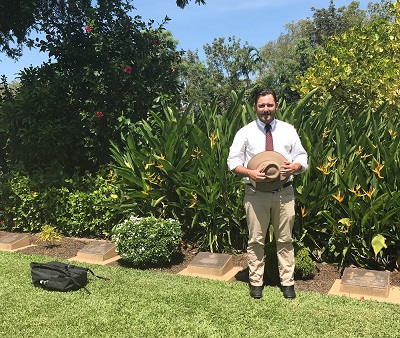
Divisions
-
Community Partnerships and Priorities
- Aboriginal Partnerships
- Child and Youth Wellbeing
-
Community Policy and Engagement
- Advisory groups
- Centenary of ANZAC
- Companion Card Program
- Concessions Guide
- Prevention of Family and Sexual Violence
- International Women's Day
- Frank MacDonald Memorial Prize
- Significant Tasmanian women
- Tasmanian Honour Roll of Women
- Women on Tasmanian boards and committees
- Veterans Programs
- Seniors Card
- Tasmanian Carer Action Plan
- Older Tasmanians
- LGBTIQA+ Tasmanians
- Volunteering
- Multicultural Tasmanians
- Food Relief to Food Resilience
- People with Disability
- Women
- Community and Disability Services
- Community Grants
- Contact
- Digital Strategy and Services
- Office of Local Government
- Office of Parliamentary Counsel
- Office of Review and Evaluation
- Office of the Secretary
- Resilience and Recovery Tasmania
- Corporate and Government Services
- Policy Division
- Service Tasmania Unit
- State Service Management Office
Contact Details
By phone
Find the number of a specific division or office to contact them directly or call Service Tasmania on 1300 135 513.
Our staff
Use the Tasmanian Government Directory to find staff contact details
Social media
Follow our social media accounts to keep up to date with specific programs and initiatives.
Sapper Victor William Paget

Photo: Hon Felix Ellis MP paid his respects to Sapper William Paget and researched his story.
Victor William Paget, of Hobart, was a toolmaker, a vital industrial, and essential trade so he did not enlist for World War Two until September 1942.
Sapper Paget was deployed to the Northern Territory Force and arrived in Darwin on 16 February 1943, a year after the initial bombing of Darwin.
Sapper Paget’s unit was in Milingimbi on 9 May 1943. Being a Sunday many on the island had attended church, though Paget, himself a Church of England Anglican, was unloading aircraft fuel, munitions and other supplies from the SS Islander and HMAS Maroubra with others from 5 Docks Operating Company. They were guarded by the Navy corvette, HMAS Latrobe.
At around 11:00am radar detected potential hostile aircraft approaching and 10 minutes later Japanese aircraft were sighted. Initially the bombers targeted the island’s stores at the Mission, including goods recently unloaded from the Islander. Those on the ground expected the Japanese bombers would circle back around for another strike on their targets. Many now hid in the shelter of the mangroves and slit trenches.
Onboard the Islander, Sapper Paget and others in his company were scrambling to throw over the side drums of fuel that had been moved on to the deck as part of the unloading. Captain Bert Cummings said “I have never seen a deck cargo move so quickly. They fairly dealt those high-octane drums over the side like a deck of cards.” In seeking to move the drums to safety, Sapper Paget was in a highly exposed position when the Japanese bombers re-entered the fray. The ship was now mobile and had begun taking evasive action as the bombers struck precisely in the position the Islander had just been. The damage to the islander was indirect but substantial, with an estimated 300 puncture holes the vessel from the explosion. As the Sally bombers departed, Captain Cumming called for air support from Spitfires at neighbouring bases who confirmed pursuit. He then assessed the damage – all up 12 of the crew were injured. However, the worst of all these was young Sapper Paget, his stomach slashed open by a large piece of shrapnel.
Stomach wounds often led to a particularly dreadful death and Sapper Paget’s final minutes are likely to have been agonising. There was little that could be done for a wound that extensive in such a remote location.
Felix Ellis MP was the Tasmanian Parliamentary representative for the Frank MacDonald Study Tour in 2022 and researched Sapper Victor William Paget.
